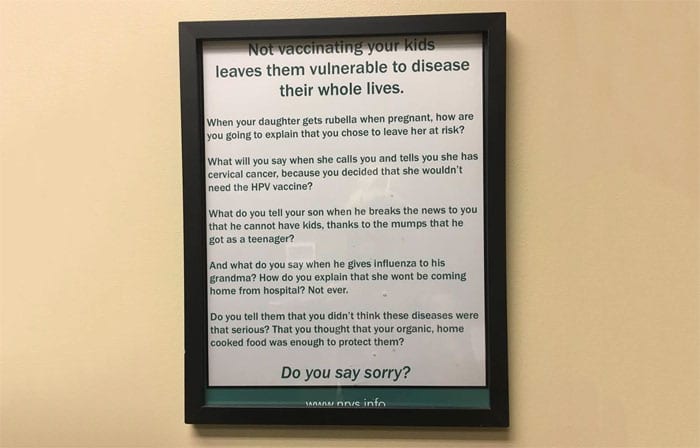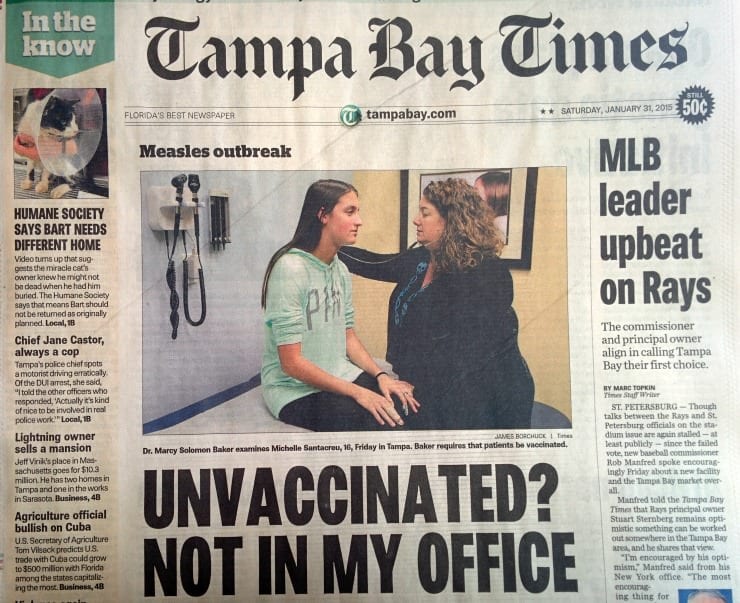Trending Now
If you have kids (and even if you don’t), you’ve no doubt heard all the controversy around parents choosing not to vaccinate their kids. Even though several studies have shown there is no link between vaccines and autism – in fact, no reputable study has ever shown that there is a link – for some reason, the idea has gained traction. And ever since it was brought to a wider audience by TV star Jenny McCarthy, anti-vaccination has become a dangerously uninformed movement.
But before we get into how doctors’ offices are handling these anti-vaxxers, here’s some background on vaccines and their many benefits.
Vaccines were first developed by scientist Edward Jenner in the 18th century. After repeated tests with a proto-vaccine for smallpox that were ultimately successful, Jenner was dubbed the “father of immunology.” His work is said to have “saved more lives than the work of any other human.”
But despite all that, many parents think they know more than centuries of combined science. So some doctor’s offices decided to make a bold move in defense of vaccines.

Photo Credit: Sunni Mariah
As a result of anti-vaxxers, doctors have had to make hard choices in how they handle children who could potentially be bringing deadly diseases into spaces where immunosuppressed or otherwise compromised children also spend time. These notices, which have been found in offices across the country, make it clear that doctors are honoring the “do no harm” part of their oath by considering the health of all of their patients — which means not accepting children who have not been vaccinated into their practice.

Photo Credit: Bored Panda
One physician, Dr. Charles Goodman, summed up his position:
“Parents who choose not to give measles shots, they’re not just putting their kids at risk, but they’re also putting other kids at risk – especially kids in my waiting room.”
And based on the number of people who’ve shared notes at their local offices, Dr. Goodman’s feelings aren’t unique.
The American Academy of Pediatrics’ official stance is that doctors should discuss the importance of vaccinations with patients but should ultimately respect parents’ wishes on the subject unless not vaccinating poses a significant risk to the child.

Photo Credit: Tampa Bay Times
These doctors feel that they can respect a parents’ wishes but also set their own rules for treatment in their offices.
I think it’s hard to disagree.
So if you’ve decided not to vaccinate your children, you may soon have to find a new pediatrician.






